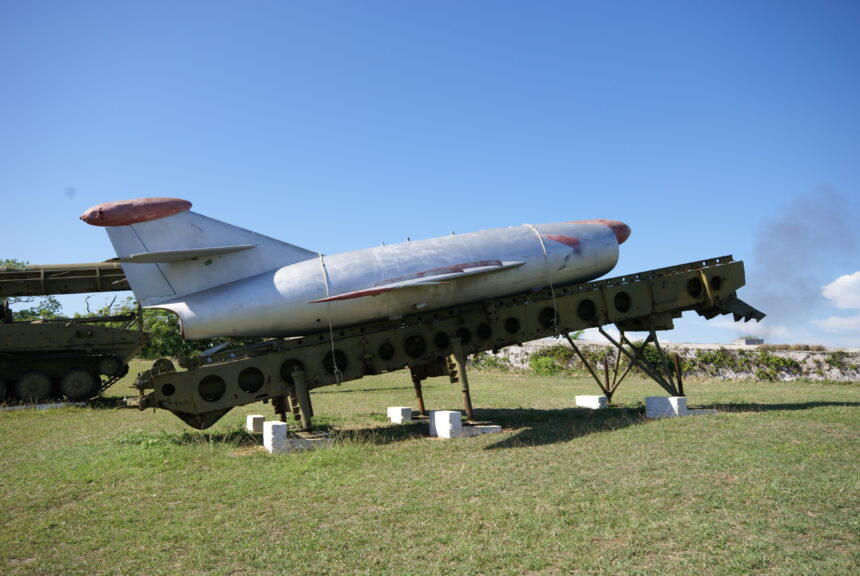Twenty years ago, we traditional conservatives, paleoconservatives, members of the dissident right—whatever you want to call us—had perhaps our finest hour. With the nation still looking to avenge 9/11, a number of powerful people who had been scheming to invade Iraq long before 9/11 used that tragedy to plunge America into a disastrous war of choice.
Few other conservatives of any stripe spoke in opposition to a preemptive war against a nation that had nothing to do with 9/11 and was no threat to America. Those of us who did speak out were denounced as “unpatriotic conservatives” on the cover of National Review by a man who has never been an American patriot and who no longer even pretends to be a conservative.
Twenty years later, there is a near-universal consensus that we were right about Iraq, and no one questions our patriotism for having opposed that unnecessary and unjust preemptive war.
On Feb. 24, 2022, a different nation launched another preemptive war. Once again, the country attacked posed no threat to the attacker. Once again, the war was entirely one of choice. But this time, far fewer people in my corner of the right—particularly on social media—offered much beyond pro forma criticism of the nation starting this preemptive war. Indeed, the attacking nation, Russia, was portrayed as a victim or even a hero by some (such as Padraig Martin at Occidental Dissent), while others, such as retired Army Colonel Douglas MacGregor, said that the U.S. should stop encouraging Ukrainians to resist their stronger neighbor. “We should stop shipping weapons and encouraging Ukrainians to die in what is a hopeless endeavor,” MacGregor said on Fox News on Feb. 27.
But one thing has remained the same. According to Miami Herald, Communist Cuba has again taken the side of Russia and blames that country’s aggressive behavior in Ukraine on American imperialism. We are again reminded of how the U.S. reacted to the installation of a Communist regime in Cuba, and some have drawn a parallel between American actions against Castro’s government as a Soviet proxy and Russian actions against Ukraine’s government as a NATO proxy. Supposedly Putin is protecting his country against his enemies by invading a hostile Ukraine, just as the U.S. reacted to the establishment of a Soviet outpost in Cuba.
Ukraine posed no threat to Russia, much less an imminent threat. There are no NATO nukes in Ukraine aimed at Moscow, so the Cuban Missile Crisis, in 1962, is a weak parallel.
The NATO membership argument also demonstrates how dissimilar Russian’ invasion of Ukraine is with the Cuban Missile Crisis. Regarding the “threat” of Ukraine joining NATO, Putin knew, when he ordered his invasion, that there was no prospect of Ukraine joining NATO—he was given assurances by EU leaders before the invasion, and the West’s unwillingness to send troops to defend Ukraine demonstrated how meaningless it joining the NATO military alliance would be. Every president from Johnson to Bush Sr. accepted Cuba’s alliance with the Soviets; none threatened to invade Cuba to end that alliance, and none maintained that Cuba belonged to the United States and that Cubans were actually just another type of American, with no right to a political existence of their own.
In fact, although America objected to the Soviets placing missiles in Cuba, the Kennedy administration never threatened Cuban nationhood to stop the Cubans from allying with the Soviets. Yet, to justify his invasion, Putin claimed that Ukraine belonged to Russia, that Ukrainians were just another type of Russian, and that Ukrainians had no right to a political existence apart from Russia. That these are lies is proved, conclusively, by the reaction the Ukrainians have given the Russian invaders.
America did assist the Cuban exiles who landed at the Bay of Pigs, but that is analogous to Russia’s support for the separatists in Luhansk and Donetsk. Battalions of marines did not wade through the surf at the Bay of Pigs, nor did American jets come to the rescue of the Cuban exiles once the Communists started overrunning them.
It is very difficult to see an ending to this war that would leave Russia or traditional conservatism or traditional Christianity in a stronger position than before it began. The decision to invade was made by one man and one man alone. That decision has already cost thousands of lives, both Russian and Ukrainian; devastated cities, towns, and villages; and displaced some 10 million people. A conservative case for Putin could, perhaps, be made before Feb. 24; none can be made now. As Robert Burns wrote in a different context, “leave a man undone, to his fate.”
That is not to say that there are not many valid points for us on the dissident right to make:
- Many of the sanctions being imposed promise to do nothing other than impoverish ordinary people, including ordinary Americans.
- The fact that the Europeans clearly have the means and manpower to defend themselves from Putin’s underperforming army should bolster calls for us to withdraw from NATO, a withdrawal that should have occurred in 1991, after NATO had successfully completed the task for which it was created.
- President Biden comes across as reckless as Putin, seemingly willing to seek “regime change” in a Moscow that still has a formidable nuclear arsenal at its disposal.
Unfortunately, any criticism of Putin’s actions on the dissident right tends to be met with the charge that one is a dupe of the Western globalists, who set up Ukraine as a corrupt puppet state to oppose the traditionalist and Christian Russia. One should be able to take a more nuanced view, especially of a war we are not even in, without having one’s loyalty to the American nation questioned.
